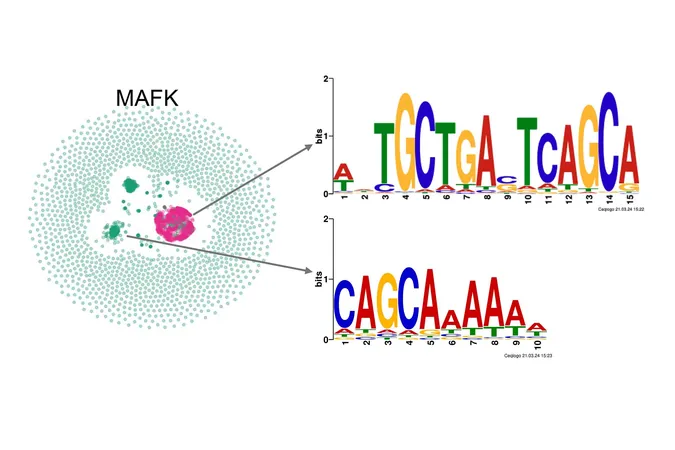
Revolutionary Diabetes Medications May Slash Alzheimer’s Risk!
2025-04-17
Author: John Tan
Groundbreaking Findings for Diabetes and Brain Health
As Alzheimer’s disease (AD) rates continue to soar, a new study shines a light on an unsettling connection between type 2 diabetes (T2D) and heightened cognitive decline. Yet, amid the gloom, researchers from the University of Florida College of Pharmacy have discovered a silver lining—diabetes medications known as GLP-1 receptor agonists (GLP-1RAs) and sodium-glucose cotransporter-2 inhibitors (SGLT2is) could provide a formidable defense against Alzheimer’s-related dementias (ADRD).
What Makes This Study Stand Out?
Published in JAMA Neurology, the study analyzed data from the OneFlorida+ Clinical Research Consortium, examining electronic health records from January 2014 to June 2023. The focus? A staggering 67,000 patients over the age of 50 with T2D, all of whom had never been diagnosed with ADRD. The research rigorously compared users of GLP-1RAs and SGLT2is with those taking other glucose-lowering drugs.
Stunning Results: Lower Risk for Diabetes Patients!
The results were nothing short of astonishing: patients using GLP-1RAs enjoyed a 33% lower risk of developing ADRD, while SGLT2is users reaped an even more impressive 43% reduction in risk! Notably, there was no significant difference between the two groups in terms of ADRD risk, signaling both treatments as potential champions in Alzheimer’s prevention.
Expert Insights: Enhanced Brain Protection!
Dr. Serena Jingchuan Guo, the study's lead author, highlighted the potential of these diabetes medications: "It’s exciting that these diabetes medications may offer additional benefits, such as protecting brain health. Based on our research, there is promising potential for GLP-1RAs and SGLT2is to be considered for Alzheimer’s disease prevention in the future."
Rigorous Research with Room for Improvement
This influential study stands out due to its robust methodology, enhancing the validity of its findings. However, the authors acknowledged some limitations, including a relatively short follow-up period and the reliance on diagnosis codes for identifying ADRD cases, which may introduce inaccuracies. Furthermore, the researchers urged the need for validation across diverse demographic groups to ensure widespread applicability.
Looking Ahead: More Research Needed!
As the study wraps up its revelations, the implications are clear: the neuroprotective benefits of GLP-1RAs and SGLT2is could potentially revolutionize Alzheimer’s prevention strategies. However, more extensive research, including randomized controlled trials, is critical to confirm these findings and pinpoint which patient populations will benefit the most.
The Future of Diabetes Treatment and Brain Health!
With the promise of dual benefits—managing diabetes while safeguarding cognitive health—these medications could change the game for millions. Keep an eye out as researchers dig deeper, aiming to uncover the intricate relationships between diabetes medications and Alzheimer’s risk!


 Brasil (PT)
Brasil (PT)
 Canada (EN)
Canada (EN)
 Chile (ES)
Chile (ES)
 Česko (CS)
Česko (CS)
 대한민국 (KO)
대한민국 (KO)
 España (ES)
España (ES)
 France (FR)
France (FR)
 Hong Kong (EN)
Hong Kong (EN)
 Italia (IT)
Italia (IT)
 日本 (JA)
日本 (JA)
 Magyarország (HU)
Magyarország (HU)
 Norge (NO)
Norge (NO)
 Polska (PL)
Polska (PL)
 Schweiz (DE)
Schweiz (DE)
 Singapore (EN)
Singapore (EN)
 Sverige (SV)
Sverige (SV)
 Suomi (FI)
Suomi (FI)
 Türkiye (TR)
Türkiye (TR)
 الإمارات العربية المتحدة (AR)
الإمارات العربية المتحدة (AR)